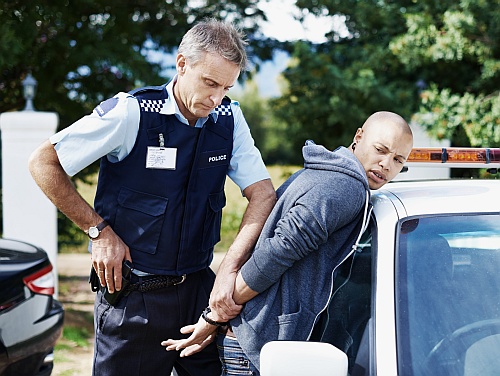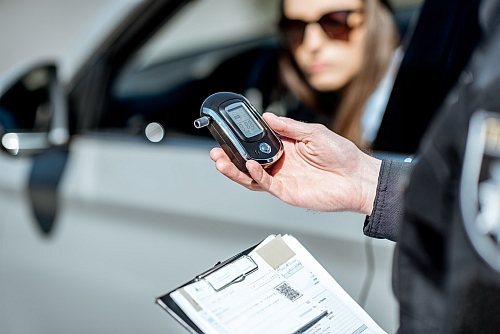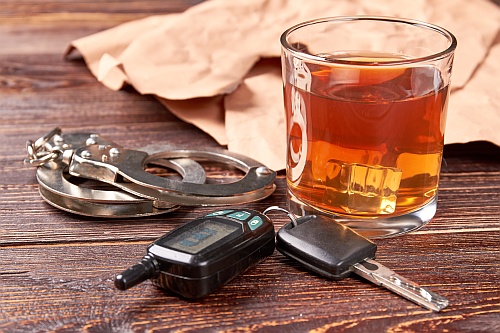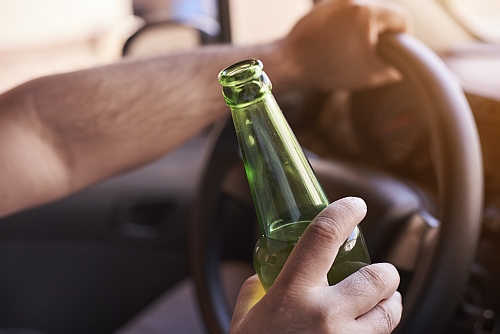- May 25, 2023
If you’re thinking of getting behind the wheel after a night out in Charleston, it’s essential to understand how DUI charges in South Carolina work—particularly the role of Blood Alcohol Concentration (BAC) when it comes to being pulled over.
Although DUI charges in South Carolina vary depending on the specifics of each situation, BAC is a major factor that can determine the severity of the charge. So what is BAC, and how does it affect your chances of being charged with a DUI in Charleston?
What Is BAC?
Blood Alcohol Concentration (BAC) is the percentage of alcohol in your bloodstream. It’s measured by the number of grams of alcohol per 100 milliliters of blood. BAC levels can vary depending on several factors, including body weight, gender, food consumption, and the amount and type of beverage consumed.
In South Carolina, it is illegal to operate a motor vehicle with a BAC level above 0.08%. If you’re under 21 years old or driving a commercial vehicle, your legal limit drops to 0.02% and 0.04%, respectively.
It’s important to note that even if you feel fine after drinking alcohol, your BAC level might still be above the legal limit. Different people handle alcohol differently based on their tolerance levels and other individual factors.
If you get pulled over for a suspected DUI in South Carolina, law enforcement officers may use various methods to determine your BAC levels accurately. These include breathalyzer tests or blood tests taken at a hospital or medical facility.
Understanding how BAC works is essential when it comes to avoiding DUI charges in South Carolina. In our next section below, we’ll discuss three different tiers for such charges that depend on one’s Blood Alcohol Concentration levels
The Three Tiers of DUI Charges in South Carolina
In South Carolina, DUI charges are divided into three tiers based on the level of Blood Alcohol Concentration (BAC) at the time of the arrest.
The first tier applies to drivers with a BAC between 0.08% and 0.10%. This is considered a lesser offense but still carries penalties such as fines, license suspension, and mandatory alcohol education classes.
The second tier applies to drivers with a BAC between 0.10% and 0.16%. These charges carry more severe penalties than the first tier, including longer license suspensions and possible jail time, depending on prior convictions.
The third tier applies to drivers with a BAC over 0.16%. This is considered an aggravated level of intoxication in South Carolina and carries even harsher penalties, including longer jail sentences, higher fines, and mandatory installation of an ignition interlock device in their vehicle after their license suspension period ends.
It’s important to note that these tiers only apply if no accident or injury was involved in the DUI incident. If someone was hurt or killed due to drunk driving, it can lead to felony charges regardless of their blood alcohol concentration level at the time of the arrest.
Factors That Can Affect BAC Levels
The BAC in the blood can be affected by many factors, such as your weight, gender, and the amount of food or drink you’ve consumed. This can make it so that one person’s BAC differs from another’s.
These BAC variations are important to understand because they can determine the outcome of your DUI case. Depending on whether or not you’re over the legal limit, you could be facing a combination of fines, jail time, and license suspension.
Weight
Generally speaking, the heavier you are, the less likely you will be to have a higher BAC level than someone with your body weight who drinks the same amount as you do.
Gender
In addition to body weight, gender can also impact a person’s blood alcohol concentration levels. Generally speaking, female bodies metabolize alcohol differently than male bodies—meaning that women may have higher BAC levels than men who have consumed the same amount of alcohol.
Food Consumption
Eating food while drinking can slow down the absorption rate of alcohol into your bloodstream—which in turn makes it more difficult to get accurate results from a breath test. In other words, if you’ve been snacking before drinking your beer or wine, your BAC during the test may significantly differ from when you consumed alcohol.
Defending Against DUI Charges Involving BAC
If you’ve been charged with a DUI in South Carolina and your BAC is 0.08 or higher, you may still have potential defenses to challenge the charges against you.
Challenging BAC Measurements
It’s important to challenge the accuracy of any BAC readings performed by law enforcement, as they can be unreliable. Factors such as equipment malfunctions, improper calibration of instruments, and faulty collection or storage of samples can all lead to inaccurate BAC readings.
Arguing That You Were Not Driving Under the Influence
Even if a person’s BAC is high enough that they are at risk of being convicted for driving under the influence, an experienced DUI defense attorney might be able to argue that the defendant was not driving under the influence at the time of arrest based on factors such as:
- The amount of time between the consumption and operation of a motor vehicle
- The driver’s behavior regarding driving safely
- Whether there was any impairment due to alcohol consumption
Whatever defense you decide to pursue in court, you must have qualified legal representation from an attorney with experience with DUI cases. An experienced attorney will know how best to defend your case and give you the best chance of avoiding severe penalties associated with a DUI charge.
Reach Out to a Skilled Charleston Criminal Defense Attorney For The Help You Need!
It’s essential to understand the legal implications of a high BAC. Depending on your BAC level, a DUI charge may be prosecuted as a misdemeanor or a felony. That’s why finding an experienced Charleston criminal defense attorney to help you in these trying times is so important.
The penalties associated with DUIs can range from fines, jail time, license suspension, community service, and more. The amount of time and fines that come with a DUI sentence depends on your specific circumstances and the severity of the offense. This is why working with a reputable criminal defense attorney who knows the ropes regarding DUIs in South Carolina is important.
A quality attorney will also consider any extenuating circumstances that may influence your sentence and apply their knowledge of state law to advocate on your behalf. No matter what stage you are in your DUI case, contact an experienced Charleston criminal defense attorney for help. We are here for you!








